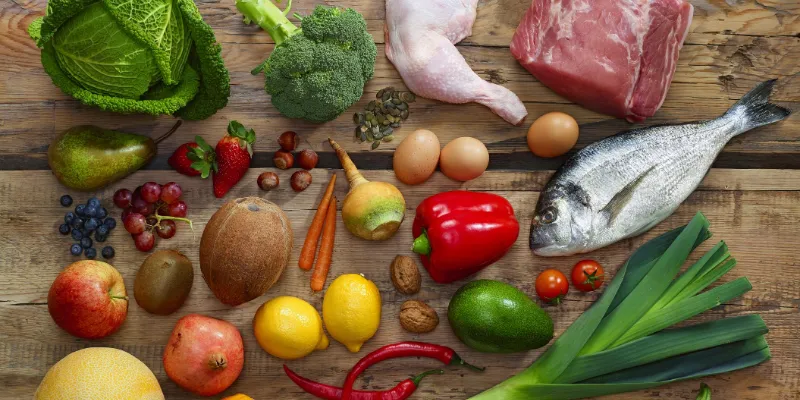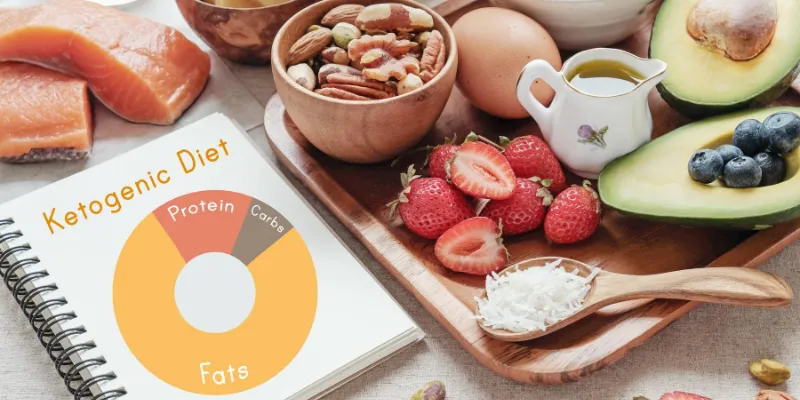Good or bad? Here’s what you need to know about food fads in India
What is considered as a great diet today is replaced tomorrow by something with an opposite belief. Here’s a list of food fads where one needs to have some caution.
Food fads are a part of the dietary world. What is considered as a great diet today is replaced tomorrow by something with an opposite belief. When there is a food fad, it will seem as if there is no other diet that is as magical or effective. At times, it might not even be practical. When it comes to food fads, there are two things that you should always keep in mind.

We are all guilty of following food fads blindly.
First, whether you are starting your health journey — if you are shifting from a standard diet, that is full of processed foods. The second thing to keep in mind is whether the diet is practical within your life and schedule.
Here’s a list of food fads where one needs to have some caution.
What are some major food fads and diets out there today?
Diets can be confusing. You will usually be faced with someone pitching a diet that worked for them to you so strongly, that you will think that no other approach will work. Think about what a diet would involve in terms of application. Remember that no one size fits all. Always start with a basic health protocol, where you simply reduce processed foods and sugar.
Paleo
The Paleo approach is extremely popular and has been used to address weight loss, inflammation, digestive challenges, improve energy, and address conditions like diabetes, and autoimmune conditions.
Recently, I saw many online forums sharing images of what a paleo diet should look like. It involves eating more grass-fed meats like beef, free-range poultry, fruits, vegetables, nuts, seeds, eggs, mushrooms, coconut, avocado, olive oil, fermented foods and reducing beans, grains, dairy, and sugar.

Paleo Diet can be very restrictive and is not a long term solution.
What’s challenging is to apply this while still wanting to remain a vegetarian. Simply put, it does not translate into a vegetarian or vegan application. Beyond that, it can also induce deficiencies of B vitamins if there are no meats like the liver.
It causes an imbalance of omega-3 and omega-6 if there is a heavy consumption of nuts and seeds, and can be very restrictive. It is not meant to be a long-term diet, but a short-term therapeutic application.
Keto
Keto was created as a diet to treat conditions like seizures. It involves eating 70 percent fats, 25 percent proteins, and five percent carbohydrates. It reduces all grains and fruits while including grass-fed butter and ghee, high amounts of coconut oil, and other fats.
Keto diets being implemented today can be very high in processed fats like cheese and butter and can become inflammatory by itself. It might have great benefits for weight reduction, but it can induce many deficiencies which include selenium, calcium, carnitine, and potassium.

Keto can be great for weight reduction, but on the flipside can also cause many a deficiency.
If one is unable to digest fats, it causes dehydration, allergies to high amounts of specific foods like dairy and liver challenges, and gallstones. Consuming large amounts of dairy like cheese can also cause lymphatic congestion, where the waste disposal system is clogged, and it can impact you with joint pain, swelling, and much worse.
Do you really need such an extreme diet? Think about whether you need something so therapeutic, which was used traditionally to treat neurological conditions.
Intermittent fasting
Time and again, intermittent fasting has been questioned for its application to women. Multiple research has found that it can be detrimental to women in reproductive years, as it can elevate cortisol (the stress hormone), reduce progesterone (the calming hormone), and predisposing women towards hormonal imbalance, anxiety, and depression.
However, it, too, has many benefits. It can greatly reduce insulin resistance and support conditions like PCOS. But, if someone has thyroid challenges, then it can create many problems.

Intermittent fasting should be done with caution, and without stress to the body.
Intermittent fasting can be beneficial when done therapeutically — in a way that does not stress the body. If you find a woman, who ends up with more anxiety, poor sleep, hormonal imbalance, and mood swings, then it probably is not the diet for them at all.
Raw food diet
This diet involves eating nothing which is cooked in high heat. You can eat anything raw which is juiced, fermented, dehydrated, raw, or sprouted. It involves eating vegetables, fruits, mushrooms, algae, cold-pressed oils, fermented foods, nuts, seeds, and superfoods like cacao and bee pollen.
While the good news here is that you might end up eating plenty of fruits and vegetables, but it can induce serious deficiencies like Vitamin B-12, causing problems with feeling full for many who need more substantial proteins, leading to fatigue, causing sleep disorders, low libido, impacting blood sugar balance, causing problems with bone density, and even ending up with low cholesterol.

While a raw food diet can be followed a lot of vital proteins get lost.
Many people think low cholesterol is a wonderful thing, but it can be as dangerous or even more than high cholesterol. Cholesterol is the building block of steroid hormones and sex hormones. It can cause problems with hormone release and regulation. Low cholesterol can also cause neurological damage as the brain relies on fat.
If you do not want something extreme, just begin with baby steps such as taking out processed foods, reducing sugars, eating more balanced meals with local ingredients, and more. Eat the way your ancestors ate, rather than embracing a diet that was probably not created with the Indian paradigm in mind.
(Image Credits: Shutterstock)
Edited by Suman Singh











